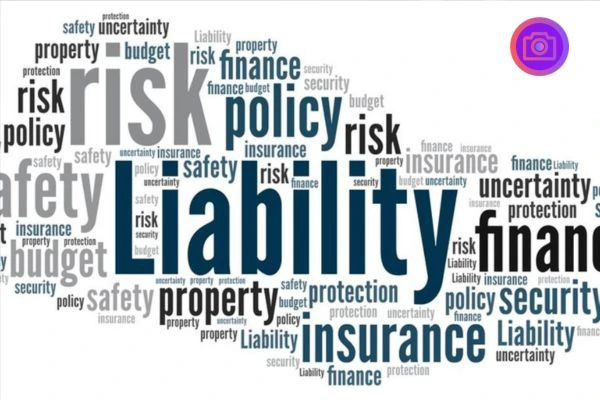
Best AI Resume Builders in the USA (2025)
June 15, 2025
How to Use Instagram Reels and TikTok for Business Growth
June 23, 2025If you’re a freelancer or run an online store in the USA, you need protection. That’s where professional liability insurance and business insurance for tech professionals come in. This guide is made for you, the freelance developer, online seller, or independent professional who wants peace of mind and legal protection.
You’ll learn about policies like errors and omissions (E&O) policy, insurance for independent professionals, and even freelance software developer legal protection. We’ll keep things easy to understand, with real examples and simple words. Freelancers and online sellers face unique risks in today’s fast-moving digital economy. A simple error, missed deadline, or product issue can quickly turn into a costly legal problem.
That’s why having the right professional liability insurance is no longer an option; it’s essential. Whether you’re a freelance developer, an eCommerce seller, or an independent contractor, this guide will help you understand how to protect yourself with the right coverage. We’ll walk you through everything from errors and omissions (E&O) policy basics to picking an insurance carrier that fits your needs. You’ll also learn how top providers offer modern solutions like digital insurance access and self-service insurance platforms designed just for people like you.
Why Freelancers and Online Sellers Need Business Insurance Today
Freelancers and online sellers face many risks. If you’re a freelance developer, you might deal with coding project liability or missed deadlines. That’s why legal coverage for developers and sellers is so important.
Insurance helps protect your income and business. Clients feel more confident when you have a policy. Some clients even require an insurance certificate (COI) or add add-insured clause in your contract. Having coverage also boosts your image as a true professional.
Understanding Professional Liability Insurance
It is also known as errors and omissions coverage or E&O insurance for freelancers. This type of policy is essential if you give advice, write code, or provide services.
If you’re a software developer, you’re open to many risks. Maybe your app fails, or your code causes a loss. This is where the software developer insurance policy protects you. It covers legal defense costs, settlements, and more.
Key Features to Look for in a Liability Insurance Policy

Not all policies are the same. Look for features that match your needs. First, check the financial strength rating of the insurance carrier. Next, check the claims service experience. You want a company that handles claims quickly.
Make sure the policy includes:
| Feature | What it Means |
| Flexible deductible options | Choose a plan that fits your budget |
| Consent to settle | You have control over legal decisions |
| Lost wage reimbursement | Covers income if you miss work due to a case |
| Disciplinary proceeding coverage | Helps if a licensing board comes after you |
| Business entity coverage | Protects your company, not just you |
These features are useful, especially for IT professional liability policy or freelance software developer legal protection.
Popular Insurance Providers for Freelancers & Online Retailers
Many companies now offer policies made for freelancers. If you’re looking for freelance developer insurance or remote work insurance, check these providers:
| Provider | Special Feature |
| Next Insurance | Best for tech freelancers |
| Hiscox | Strong claims service experience |
| Thimble | Great for part-time or project-based work |
| Simply Business | Let’s you compare different options easily |
| State Farm | In-person support available |
These providers offer tools like self-service insurance platforms, fast online quotes, and digital insurance access. Some let you adjust your policy premium with just a few clicks.
Specific Risks Freelancers and Online Retailers Should Prepare For
Every freelancer faces risks. For tech professionals, it could be a bug in your code. That’s why software developer liability is serious. One mistake could crash a system or lose data. Online sellers may ship the wrong item or face copyright issues.
Without client lawsuit protection, one bad review or mistake could lead to huge costs. Many face regulatory investigation coverage needs if they handle user data. So, whether you’re coding or selling, insurance can save your business.
How Commercial Insurance Agents Are Adapting to Freelancer Needs

Insurance is changing. Agents now offer policies designed for gig workers and self-employed tech insurance. You can get quotes in minutes online and manage everything from a dashboard. You no longer need to sit in an office or wait on hold.
With tools like digital insurance access, even insurance policies for contractors are easier than ever. You can print your insurance certificate (COI) anytime, adjust your policy premiums, and file claims through apps. It’s fast, easy, and made for your way of working.
The Bottom Line: Do You Need Freelance Insurance?
The short answer is yes. But with client lawsuit protection, you’re covered.
Think of insurance as a safety net. It protects your work, income, and future. Clients will also take you more seriously. It shows you’re responsible and ready for serious business. If you’re still unsure, talk to an agent who understands independent contractor status.
Frequently Asked Questions
How much does professional liability insurance cost for freelancers in the U.S.?
Costs vary, but most freelancers pay between $25 and $75 per month. It depends on your industry, location, and risk level. Tech freelancers often pay a bit more due to software developer liability.
Can I get business insurance if I only freelance part-time?
Yes. Many providers offer policy premium adjustment options. You can get part-time or per-project coverage using a self-service insurance platform.
What’s the difference between professional liability and general liability insurance?
Professional liability insurance covers mistakes in services or advice. General liability covers physical damage or injury. Freelancers usually need both.
Is business insurance tax-deductible for freelancers?
Yes. It counts as a business expense and can reduce your tax bill. Just keep your records clean and check with an accountant.
Do I need separate coverage for selling products online?
Sometimes yes. If you sell physical items, look into product liability. It’s different from E&O insurance for freelancers.
Conclusion
Choosing the right professional liability insurance is one of the smartest moves any freelancer or online seller can make. From coding project liability to client disputes, the risks are real and can hurt your reputation and income. With proper errors and omissions coverage, you’re not just buying protection, you’re investing in your peace of mind and future.
As remote work and digital services continue to grow, so do the legal and financial responsibilities that come with them. Whether you’re a freelance software developer, consultant, or online store owner, don’t wait for a problem to take action. Get insured, stay protected, and show your clients you’re a true professional they can trust.




